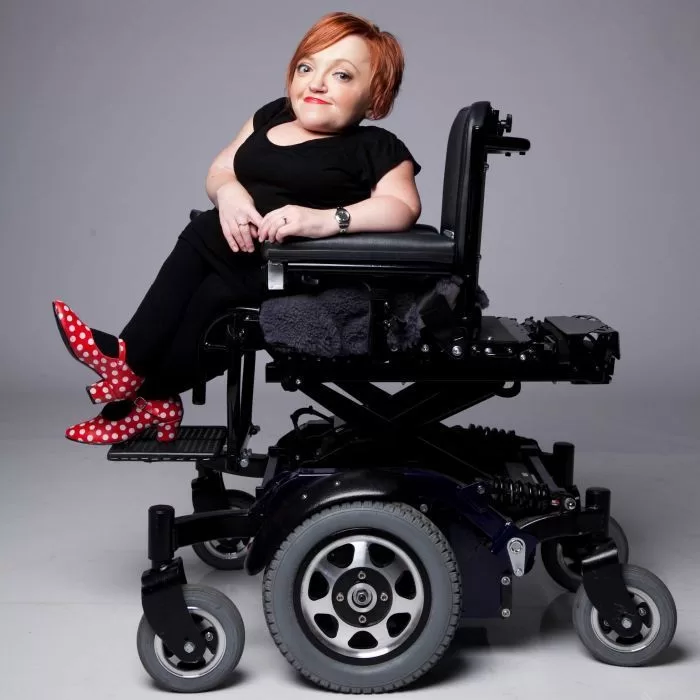Updated on July 22, 2024

What is Fibromyalgia?
Fibromyalgia is a chronic condition caused by widespread musculoskeletal pain, fatigue, sleep disturbances, and cognitive difficulties, often referred to as “fibro fog.” It affects the way the brain processes pain signals and increases painful sensations.
Researchers suggest that fibromyalgia increases the intensity of pain sensations through its impact on the spinal cord and brain’s processing of pain signals.
The condition affects people of all ages, but it is most commonly diagnosed in middle-aged women, and symptoms tend to be milder in men than in women.
The exact cause of fibromyalgia remains unknown, though It is believed that this involves a combination of genetic, environmental, and psychological factors.
Symptoms of Fibromyalgia
1. Widespread pain and tenderness
The pain associated with fibromyalgia is often described as a dull ache, stiffness or tenderness. It is usually widespread, affecting many areas of your body, such as your upper back, lower back, neck, hips, arms and legs.
2. Fatigue
Many people living with fibromyalgia often experience extreme fatigue, even after a full night’s rest. This fatigue can significantly impede their ability to engage in daily activities.
3. Sleep problems
People with fibromyalgia often have interrupted sleep, including difficulty falling asleep, staying asleep or both. You may wake up feeling unrefreshed and experience daytime sleepiness.
4. Cognitive problems (fibro fog)
Many people with fibromyalgia experience problems with thinking and memory, also known as fibro fog. These problems can include difficulty concentrating, remembering things, and finding the right words.
Other symptoms
Depression, anxiety, headaches, migraines, irritable bowel syndrome, numbness or tingling in the hands and feet, and painful menstrual periods are all common conditions that can accompany fibromyalgia.
Is Fibromyalgia Considered a Disability in Australia?
In Australia, fibromyalgia is not explicitly classified as a disability. However, it can meet the criteria for a disability under the Disability Discrimination Act 1992 if it significantly impairs an individual’s ability to perform daily activities.
The severity and impact on daily life can vary, and those severely affected may qualify for disability support.
The severity of the condition varies widely among sufferers of fibromyalgia.
For some, fibromyalgia is mildly inconvenient, while for others, it can be debilitating and severely restrict daily activities and employment opportunities.
The recognition of fibromyalgia as a disability depends on the extent to which it impacts an individual’s ability to participate in work and social activities.
If it stops you from working for more than 15 hours a week over a sustained period, you may be considered as having a disability and be eligible for financial help from the NDIS or the Disability Support Pension (DSP).
Legal Support for People with Fibromyalgia
If you have fibromyalgia and believe it is impacting your ability to work, you can seek legal advice to understand your rights and explore your options for financial support.
A lawyer can help you navigate the application process for the NDIS or DSP and ensure your application is properly documented to maximize your chances of approval.
Legal protections for people with fibromyalgia in Australia include:
- Disability Discrimination Act 1992:This regulation ensures that people with disabilities are not subjected to unfair treatment or exclusion and actively encourages their involvement and engagement in various aspects of public life, including employment opportunities and educational access, amongst other resources.
- National Disability Insurance Scheme (NDIS): Provides support for those with significant and permanent disabilities; though not all fibromyalgia cases qualify, those with severe symptoms may be eligible for support services.
- Workplace Adjustments: Employers are required to make reasonable adjustments to accommodate employees with disabilities. This can include flexible working hours, modified duties, and ergonomic workstations.
Can Fibromyalgia Be Cured?
Currently, there is no cure for fibromyalgia. Treatment focuses on managing symptoms and improving quality of life through medications, physical therapy, lifestyle changes, and complementary therapies.
- Medication: Medications such as pain relievers, antidepressants and medications to improve sleep can help manage the symptoms of fibromyalgia.
- Exercise: Regular exercise is an important part of managing fibromyalgia. Exercise can help improve pain, sleep, mood and overall function.
- Cognitive behavioural therapy (CBT): CBT is a type of therapy that can help you learn to manage pain and cope with the challenges of living with a chronic condition.
- Complementary Therapies: Practices such as acupuncture, massage, and mindfulness meditation can provide relief for some patients.
- Patient Education: Understanding the condition and learning how to manage symptoms can empower patients and improve their outlook.
Is Fibromyalgia an Autoimmune Disease?
Fibromyalgia is not classified as an autoimmune disease. While it shares some symptoms with autoimmune conditions, it is primarily a disorder of pain processing in the nervous system.
Autoimmune diseases occur when your immune system attacks healthy tissues in your body, such as rheumatoid arthritis and lupus.
The cause of fibromyalgia is unknown. Research continues to explore the underlying mechanisms of fibromyalgia, but it is generally understood as abnormalities in how the brain and spinal cord process pain signals may be related.
Does Fibromyalgia Run in Families?
There is evidence to suggest a genetic predisposition to fibromyalgia, meaning it can run in families. However, environmental factors also play a significant role in its development. However, genetic factors alone do not determine whether someone will develop fibromyalgia and having a close relative with fibromyalgia doesn’t guarantee that you will develop the condition.
Conclusion
Fibromyalgia is a challenging and often debilitating condition that significantly impacts the lives of those affected. While it is not officially recognized as a disability in Australia, the condition can meet the criteria for disability support depending on its severity and impact on daily life.
Legal protections and support systems are available to assist individuals with fibromyalgia, but more awareness and research are needed to improve understanding and treatment of the condition.
You may also be eligible for financial support from the NDIS or DSP if your condition impacts your ability to work. Recognizing fibromyalgia as a legitimate and serious health issue is essential in providing the necessary support and accommodations for those living with it.
Looking for reliable and trustworthy care services?
At Centre Disability Support, we offer tailored support services for individuals with disabilities throughout Australia. We offer housing options in Logan, Ipswich and Brisbane areas, where we provide independent supported living or assist individuals in finding suitable options for individualised living.
Additionally, we provide day-to-day support for individuals with mental health issues, complex behaviour and other types of disabilities. We also have support coordinators available to assist with planning, navigating NDIS plans, and offering casework support.
Whether you’re seeking support for yourself, or a loved one, or simply wish to learn more about our services, we’re here to help.
MORE FROM CENTRE DISABILITY SUPPORT
IS PMDD A DISABILITY IN AUSTRALIA?
Is Endometriosis a Disability in Australia?
Is Bipolar Disorder a Disability?
IS ANKYLOSING SPONDYLITIS A DISABILITY IN AUSTRALIA?
IS AUTISM A DISABILITY IN AUSTRALIA?
IS ANXIETY A DISABILITY IN AUSTRALIA?



